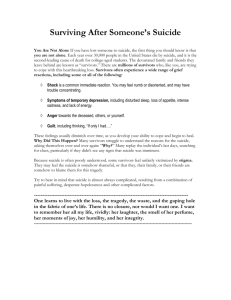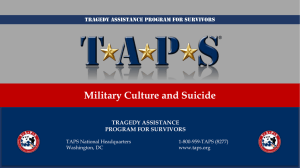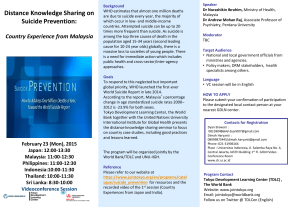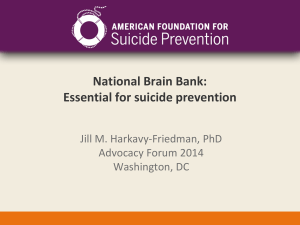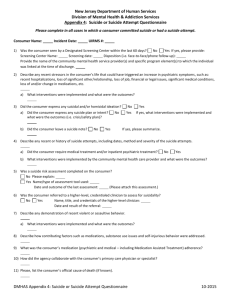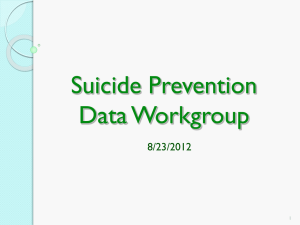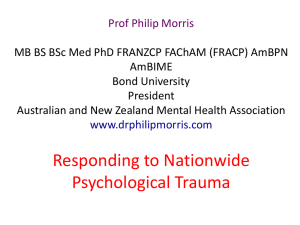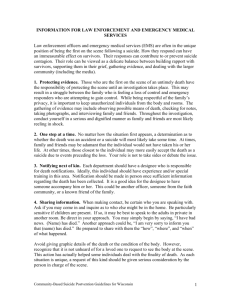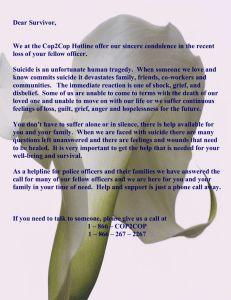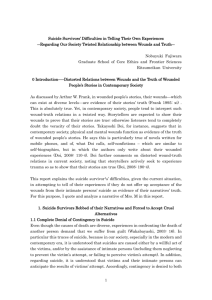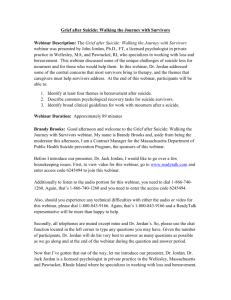Surviving After Someone*s Suicide
advertisement
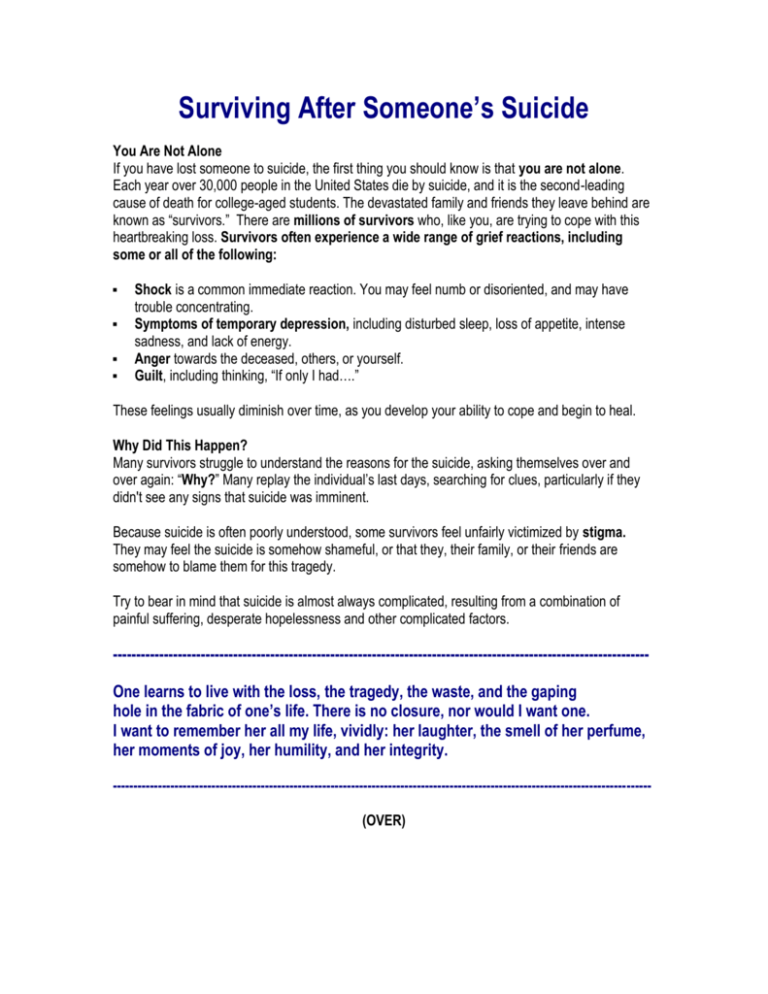
Surviving After Someone’s Suicide You Are Not Alone If you have lost someone to suicide, the first thing you should know is that you are not alone. Each year over 30,000 people in the United States die by suicide, and it is the second-leading cause of death for college-aged students. The devastated family and friends they leave behind are known as “survivors.” There are millions of survivors who, like you, are trying to cope with this heartbreaking loss. Survivors often experience a wide range of grief reactions, including some or all of the following: Shock is a common immediate reaction. You may feel numb or disoriented, and may have trouble concentrating. Symptoms of temporary depression, including disturbed sleep, loss of appetite, intense sadness, and lack of energy. Anger towards the deceased, others, or yourself. Guilt, including thinking, “If only I had….” These feelings usually diminish over time, as you develop your ability to cope and begin to heal. Why Did This Happen? Many survivors struggle to understand the reasons for the suicide, asking themselves over and over again: “Why?” Many replay the individual’s last days, searching for clues, particularly if they didn't see any signs that suicide was imminent. Because suicide is often poorly understood, some survivors feel unfairly victimized by stigma. They may feel the suicide is somehow shameful, or that they, their family, or their friends are somehow to blame them for this tragedy. Try to bear in mind that suicide is almost always complicated, resulting from a combination of painful suffering, desperate hopelessness and other complicated factors. -------------------------------------------------------------------------------------------------------------------One learns to live with the loss, the tragedy, the waste, and the gaping hole in the fabric of one’s life. There is no closure, nor would I want one. I want to remember her all my life, vividly: her laughter, the smell of her perfume, her moments of joy, her humility, and her integrity. ----------------------------------------------------------------------------------------------------------------------------------(OVER) Coping With Suicide Loss Some survivors struggle with what to tell other people. Although you should make whatever decision feels right to you, most survivors have found it best to simply acknowledge that the individual died by suicide. You may find that it helps to reach out to family and friends. Because some people may not know what to say, you may need to take the initiative to talk about the suicide, share your feelings, and ask for their help. Even though it may seem difficult, maintaining contact with other people is especially important during the stress-filled months after a suicide. Keep in mind that each person grieves in his or her own way. Some people visit the cemetery; others find it too painful to go at all. Each person also grieves at his or her own pace; there is no set rhythm or timeline for healing. Anniversaries, birthdays, and holidays may be especially difficult, so you might want to think about whether to continue old traditions or create some new ones. You may also experience unexpected waves of sadness; these are a normal part of the grieving process. Some survivors find comfort in community, religious, or spiritual activities, including talking to a trusted member of the clergy or a counselor. Be kind to yourself. When you feel ready, begin to go on with your life. Eventually starting to enjoy life again is not a betrayal of the individual, but rather a sign that you've begun to heal.
